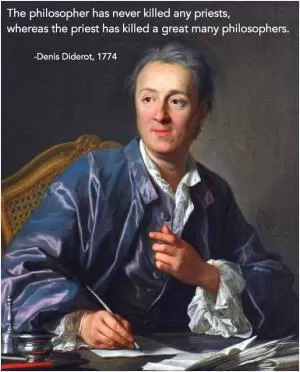Patriotism is an ephemeral motive that scarcely ever outlasts the particular threat to society that aroused it

Patriotism is an ephemeral motive that scarcely ever outlasts the particular threat to society that aroused it
Denis Diderot, a prominent figure of the Enlightenment era, was known for his radical ideas and criticism of the established social and political norms of his time. In the context of patriotism, Diderot's views were complex and nuanced, reflecting his skepticism towards blind nationalism and fervent loyalty to the state.The quote "Patriotism is an ephemeral motive that scarcely ever outlasts the particular threat to society that aroused it" can be interpreted in various ways in relation to Diderot's philosophy. Diderot believed that patriotism, like any other form of collective identity, was a construct that could be manipulated by those in power to serve their own interests. He saw patriotism as a temporary emotion that was often exploited by rulers to rally the masses behind a cause, only to be discarded once the threat had passed.
Diderot was critical of the idea of blind loyalty to the state, arguing that true patriotism should be based on rationality and a genuine concern for the well-being of society as a whole. He believed that individuals should question authority and challenge the status quo in order to create a more just and equitable society. For Diderot, true patriotism was not about mindlessly following orders or waving flags, but about actively engaging in the political process and working towards the common good.












 Friendship Quotes
Friendship Quotes Love Quotes
Love Quotes Life Quotes
Life Quotes Funny Quotes
Funny Quotes Motivational Quotes
Motivational Quotes Inspirational Quotes
Inspirational Quotes